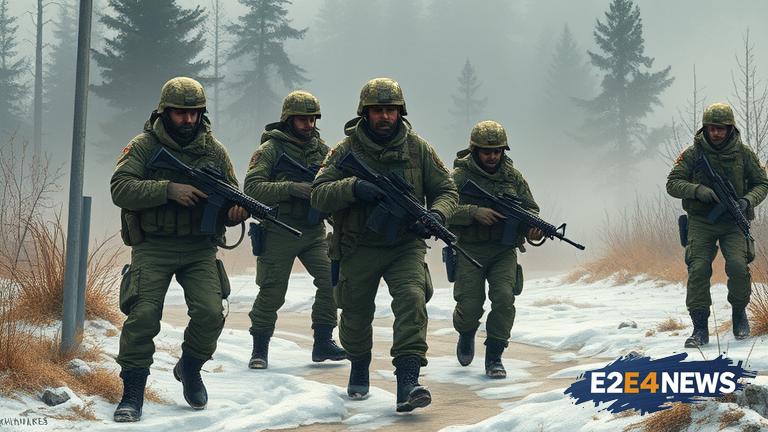In a shocking revelation, Ukrainian President Volodymyr Zelenskiy has exposed the involvement of mercenaries from various countries, including China and Pakistan, in the ongoing conflict between Russia and Ukraine. This development has significant implications for the global community, as it suggests that Russia is seeking to bolster its military capabilities by recruiting foreign fighters. The presence of mercenaries from China, in particular, raises concerns about the potential for increased Chinese involvement in the conflict. Pakistan’s involvement, on the other hand, highlights the complex web of alliances and interests at play in the region. According to Zelenskiy, these mercenaries are fighting on behalf of Russia, which has been accused of attempting to annex Ukrainian territory. The Ukrainian president’s statement has sparked widespread concern, with many experts warning that the involvement of foreign mercenaries could escalate the conflict and lead to further destabilization in the region. The international community has been urged to take notice of this development and to consider the potential consequences of inaction. As the conflict continues to unfold, it is becoming increasingly clear that the situation is more complex than initially thought, with multiple countries and interests at play. The role of China and Pakistan in the conflict is particularly noteworthy, as both countries have significant economic and strategic interests in the region. The involvement of mercenaries from other countries, including those from the Middle East and Africa, has also been reported, highlighting the global nature of the conflict. The Ukrainian government has called for increased international support, including military aid and economic sanctions against Russia, in an effort to counter the growing threat posed by foreign mercenaries. The situation on the ground remains volatile, with ongoing clashes between Ukrainian and Russian forces, as well as reports of civilian casualties and displacement. The international community is under pressure to respond to the crisis, with many calling for a more robust and coordinated approach to addressing the situation. As the conflict continues to evolve, it is likely that the involvement of foreign mercenaries will remain a major concern, with significant implications for regional and global stability. The Ukrainian president’s revelation has sparked a renewed debate about the role of foreign fighters in modern conflicts, with many experts warning that the phenomenon poses a significant threat to international peace and security. In response to the situation, the Ukrainian government has announced plans to increase its military capabilities, including the recruitment of additional troops and the acquisition of new military equipment. The international community is being urged to provide support to Ukraine, including military aid and economic assistance, in an effort to counter the growing threat posed by Russia and its allies. The situation in Ukraine is a stark reminder of the complexities and challenges of modern conflict, where multiple countries and interests are often at play. As the international community seeks to respond to the crisis, it is clear that a comprehensive and coordinated approach will be required, taking into account the various factors and interests at play. The involvement of foreign mercenaries in the conflict has significant implications for the global community, highlighting the need for increased cooperation and coordination in addressing the challenges posed by modern conflict. The Ukrainian government’s call for international support has been echoed by many experts, who warn that the situation in Ukraine has significant implications for regional and global stability. As the conflict continues to unfold, it is likely that the international community will be forced to confront the challenges posed by foreign mercenaries and the role they play in modern conflict.





